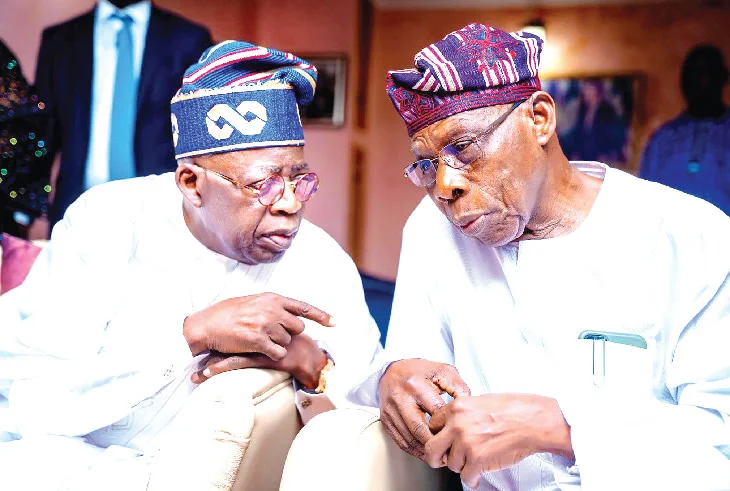The Oodua People’s Congress (OPC) has firmly addressed and dismissed accusations of ethnic prejudice leveled against President Bola Tinubu and former President Olusegun Obasanjo by Buba Galadima, a prominent figure in the New Nigeria Peoples Party (NNPP). These allegations, aired during a live television broadcast, suggested that Tinubu and Obasanjo played roles in escalating tensions between the Yoruba and Hausa communities. The OPC’s response, delivered through a press conference in Ibadan, seeks to clarify historical events and promote national unity.
Addressing Galadima’s Allegations
During the press conference held on Thursday at Orita-Aperin, Ibadan, the OPC’s national Public Relations Officer, Akin Adesina, described Galadima’s claims as misleading and lacking historical accuracy. Galadima referenced events in Ilorin, Kwara State, between 1999 and 2000, alleging that the OPC orchestrated an invasion to disrupt Fulani structures. Adesina countered, stating, “These accusations are not only baseless but also demonstrate a flawed understanding of the region’s dynamics.”
Adesina emphasized the demographic composition of Kwara State, noting that approximately 70 percent of its population is of Yoruba descent. He argued that this significant Yoruba presence negates any need for external mobilization to protect local interests, especially in a region deeply rooted in its cultural traditions. By highlighting this, the OPC aimed to debunk the notion of an orchestrated ethnic conflict.
Revisiting Historical Tensions
To provide context, Adesina revisited a notable incident from October 2000 in Saki, where Fulani herdsmen were reported to have invaded local farms, resulting in significant crop destruction and loss of life. Northern leaders, including the late President Buhari, initially accused local communities of instigating violence against the herdsmen. However, Adesina pointed out that local security reports later confirmed the herdsmen as the aggressors, contradicting the earlier narrative. “These reports clearly showed the truth, exposing the inaccuracies in the claims made at the time,” he stated.
The OPC spokesperson questioned the relevance of Galadima’s decision to revisit these events and link them to Tinubu and Obasanjo. “Dragging these leaders into a historical narrative serves no purpose other than to mislead the public,” Adesina remarked, urging a focus on constructive dialogue instead of divisive rhetoric.
Defending Obasanjo’s Legacy
Adesina also defended former President Obasanjo’s record as a leader committed to national unity. He recalled that during Obasanjo’s presidency, he took steps to limit the OPC’s influence when he perceived it as a potential threat to Nigeria’s stability. “Obasanjo’s actions were driven by a commitment to the nation’s unity, not ethnic favoritism,” Adesina asserted. He criticized Galadima for overlooking this aspect of Obasanjo’s leadership, which prioritized national cohesion over regional interests.
The OPC’s response underscored that Galadima’s allegations fail to acknowledge the complexities of Nigeria’s ethnic and regional dynamics, instead opting for a narrative that risks inflaming tensions.
A Call for Unity and Dialogue
In its concluding remarks, the OPC called on Galadima, as a respected statesman, to adopt a more constructive approach. “We expect leaders to foster unity, not division,” Adesina said, emphasizing the importance of dialogue in addressing Nigeria’s challenges. The group urged all ethnic communities to prioritize mutual understanding and collaboration to strengthen the nation’s social fabric.
The OPC’s stance reflects a broader appeal for peace and cooperation, particularly at a time when Nigeria faces multifaceted challenges. By addressing historical grievances with clarity and advocating for unity, the organization aims to contribute to a more harmonious national discourse.






